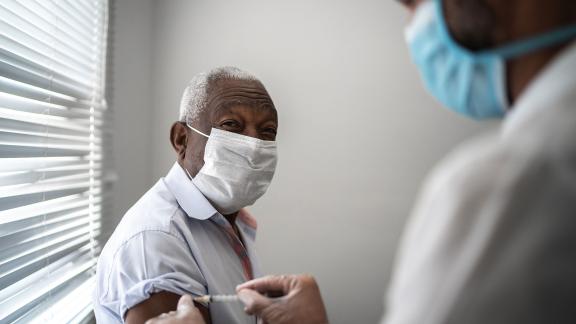Collaboration is key to catalysing health & economic transformation

Leeds Academic Health Partnership's Dr Liz Mear writes on the importance of the NHS Confederation and Civic University Network's focus on reimagining the longstanding relationship between universities and the NHS.
I was delighted to represent Leeds Academic Health Partnership at the first roundtable discussions, joining senior delegates from the NHS, higher education, further education and partnerships such as ours, comprising NHS organisations, local authorities, universities and the third sector. For anyone working in such a role, our overarching aim is to transform the health and wellbeing of the people of our regions so that they live longer and healthier lives.
Everyone at the roundtable expressed a desire to eradicate health inequalities and, as Anchor Institutions, we are all focused on actions which make a difference to people’s lives. That includes, for example, employing local businesses in our supply chain, paying them on time so that they stay in business and making sure we consider the environment in all our decisions. These actions, to make society better for everyone, are what unite us.
We also agree that something has to change to catalyse the massive impact that universities and the NHS can make by working together. The phenomenal, life-changing research into treatment and prevention of COVID-19 has shown to the world that, by working together, we can prevent illness, treat it more effectively and save lives.
Something has to change to catalyse the massive impact that universities and the NHS can make by working together
Making ‘health is wealth’ a reality
The same applies to economic growth. If we work together to support the discovery and development of innovative businesses that can change the health and lives of our residents, then we improve health, possibly save lives and create economic growth through new jobs. If we can then work together to deploy these products and services into our health and care organisations, we can also help people stay healthy. In turn, that means they can enjoy the benefits of working as long as they want to or have to. As our regional integrated care system moves to become a legalised structure it will give us an overview of innovation deployment and eradicate the disincentive of an organisation who funds an innovation not reaping the benefits. It will also help us to ensure greater equity across the system - for citizen benefit and in return on investment for funding
Our new elected mayor for West Yorkshire has ten pledges including prioritising skills and training to ensure everyone in West Yorkshire has the skills they need to secure work, and being a champion for our local businesses. As massive employing organisations, we can support local residents into employment with us. This can change their economic fortunes, give them security and improve their spending power in our regions. We discussed examples of this at the roundtable, including a programme at Lincoln Green in Leeds, one of the city’s most disadvantaged neighbourhoods. Here, the City Council worked with the teaching hospital trust to upskill local jobseekers to match the requirements of job vacancies at the hospital. These types of actions make the concept of ‘health is wealth’ a reality.
The levelling up agenda is key
In Leeds, we want to be the best city in the UK for health and wellbeing by 2030. I am sure most, if not all, of my colleagues at the roundtable have a similar aspiration. The levelling up agenda is very important to the North of England. Years of underinvestment has massively increased poverty, putting serious strain on people’s lives and their neighbourhoods. We know that we will see further cuts right across the public sector due to COVID-19 and the effects of previous austerity measures. For the same reasons, there are huge changes to the funding landscape across higher education. This could seem daunting but, when our fantastic inspirational leaders and workforces come together across the sectors to think about how we could improve health and wealth, we can achieve so much more. Education, cutting-edge clinical practice and a real commitment to transform great ideas into life-changing initiatives ensure that we drive the adoption of research and innovation.
When inspirational leaders and workforces come together across the sectors to think about how we could improve health and wealth, we can achieve so much more
The output from the collaboration through the roundtables will be used to co-produce a set of principles for how universities and the NHS can work together to maximise their collective benefits to society and the economy. These principles will help ensure such collaborative relationships remain at the heart of discussions relating to changes in national and system-wide health policy, the awareness and role of anchor institutions, and the emerging levelling up agenda.
I am looking forward to shaping and implementing these principles.
Dr Liz Mear is managing director for Leeds Academic Health Partnership and senior responsible officer for the digital work stream of the award-winning West Yorkshire and Harrogate Health and Care Partnership. Follow them on Twitter @MearLiz @LeedsAHP @WYHpartnership



